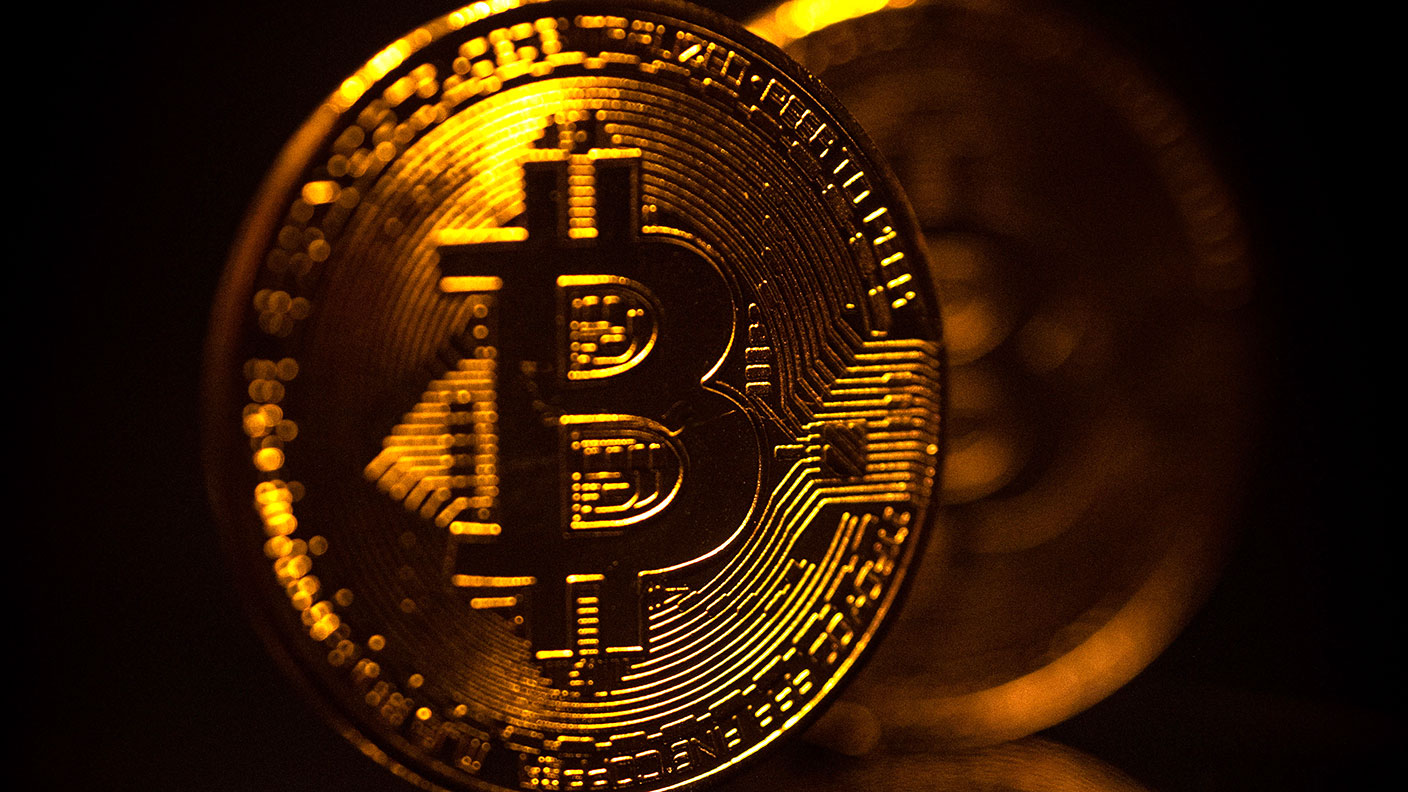What tougher rules for banks holding cryptocurrencies could mean for investors
Banks holding cryptocurrencies may have to set aside much higher levels of capital to reflect the growing risks of holding them. Saloni Sardana looks at what's proposed and what it could mean for the crypto market.


Get the latest financial news, insights and expert analysis from our award-winning MoneyWeek team, to help you understand what really matters when it comes to your finances.
You are now subscribed
Your newsletter sign-up was successful
Want to add more newsletters?

Twice daily
MoneyWeek
Get the latest financial news, insights and expert analysis from our award-winning MoneyWeek team, to help you understand what really matters when it comes to your finances.

Four times a week
Look After My Bills
Sign up to our free money-saving newsletter, filled with the latest news and expert advice to help you find the best tips and deals for managing your bills. Start saving today!
Banks holding cryptocurrencies may have to set aside much higher levels of capital to reflect the growing risks of holding them, global regulators said this week.
The recommendations came as part of a consultation report released by the Basel Committee on Banking Supervision, which sets global standards for the regulation of banks.
The report called crypto assets an “immature asset class” that pose several major risks to banks, including credit risk; market risk; operational risk (including fraud and cyber risks); money laundering and terrorist financing risk; and legal and reputation risks.
MoneyWeek
Subscribe to MoneyWeek today and get your first six magazine issues absolutely FREE

Sign up to Money Morning
Don't miss the latest investment and personal finances news, market analysis, plus money-saving tips with our free twice-daily newsletter
Don't miss the latest investment and personal finances news, market analysis, plus money-saving tips with our free twice-daily newsletter
What is the Basel Committee proposing?
The committee is proposing to divide cryptocurrencies into two different groups.
The first group proposes placing tokenised assets and stablecoins under the existing Basel Framework with some modifications and guidance. It proposes regulating them in the same way as other financial instruments such as loans, deposits, equities, bonds. “Tokenised assets” are simply blockchain tokens whose value is tied to a real asset, such as gold. Stablecoins are a similar concept, but are specifically tied to fiat currencies.
As such, the regulators perceive both tokenised assets and stablecoins to be slightly more “stable” compared to the likes of bitcoin and other digital currencies.
The second category involves subjecting cryptocurrencies such as bitcoin to a “new conservative prudential treatment”, the statement said, which would apply a 1,250% risk weighting to the banks’ exposure to digital currencies. This means that banks may have to hold a dollar of capital for every dollar held in bitcoin, so a $100 exposure to bitcoin would result in a capital requirement of $100.
However, after the announcement, bitcoin rose briefly to more than $38,000, which implies that markets had been expecting tougher action.
Also while regulators are clamping down on the still immature crypto market, the tougher rules also suggest they are slowly starting to perceive crypto as an asset class, something which lent support to the market.
Denis Vinokourov, head of research at Synergia Capital, echoes this point: “as cryptocurrencies begin to make their way into the traditional financial ecosystem, it is only normal to expect various regulatory bodies to begin to set and then also try to coordinate regulatory initiatives to protect savers and investors”, Vinokourov told CoinDesk.
Crypto markets have weakened in recent weeks, due to a bout of bad news – regulatory clampdowns by countries such as China, and a series of U-turns by Tesla’s Elon Musk, who is known in some circles as “the Federal Reserve of the crypto world”.
So if crypto prices were creeping downwards anyway, then why is the Basel committee worried about banks’ exposure to crypto?
Governments have been getting nervous about cryptocurrencies for a while
Crypto markets have spent much of the last few months hitting record after record. Much of it had to do with greater mainstream adoption by banks such as BNY Mellon and Goldman Sachs and a series of bullish statements by Elon Musk.
Tesla said it bought $1.5bn worth of bitcoin in February and later announced it started accepting bitcoin as a form of payment for its cars. The listing of Coinbase – America’s largest cryptocurrency exchange – in April also lent support to the crypto market.
But Musk backtracked on his love for bitcoin and last month said Tesla would no longer accept it because of concerns of high electricity usage in bitcoin “mining”, the process by which new cryptocurrency units are created.
This came just days after China banned its institutions from providing cryptocurrency services, and banned bitcoin mining in the country.
The rise in cryptocurrencies has alarmed regulators and many countries such as China, the US, Japan, the UK, to name a few are looking at launching central bank digital currencies (CBDCs), their response to a cashless economy. Countries are unlikely to want competition to their own CBDCs.
Bitcoin has lost more than 30% in a month. But even with this, it is up 30% since the start of the year and is trading below $38,000, at the time of writing.
So given bitcoin and some digital currencies were falling anyway, should investors care about the Basel proposals?
What this means for digital currencies and investors
The Basel Committee suggestions are “a piece of news that both advocates and critics of bitcoin will declare as a win”, says Luke Sully, chief executive of Legermatic.
On one hand investors may rejoice in the fact that bitcoin is now a recognised asset class, but the more onerous capital requirements may “make it an unpalatable business” for banks. So if it is going to cost banks more to hold cryptocurrencies, they may theoretically hold less.
But at the same time, perhaps these recommendations – if realised – could be a turning point where regulators are giving banks the green light to get involved, in a safer way, albeit at a higher cost.
Nigel Green, chief executive of advisory company deVere Group shares the same view, saying that the the tough stance “would further help protect investors, shore-up the market, tackle criminality, and reduce the potential possibility of disrupting global financial stability, as well as offering a potential long-term boost to those banks that introduce it”, he said.
For investors, it’s still probably worth paying attention to the sector – the market is growing and it could be said that regulators caring about it enough to propose safer ways for banks to hold them is evidence of the market maturing. But remember that putting money into bitcoin – or any other digital currency – remains a highly speculative punt.
Get the latest financial news, insights and expert analysis from our award-winning MoneyWeek team, to help you understand what really matters when it comes to your finances.
Saloni is a web writer for MoneyWeek focusing on personal finance and global financial markets. Her work has appeared in FTAdviser (part of the Financial Times), Business Insider and City A.M, among other publications. She holds a masters in international journalism from City, University of London.
Follow her on Twitter at @sardana_saloni
-
 Should you buy an active ETF?
Should you buy an active ETF?ETFs are often mischaracterised as passive products, but they can be a convenient way to add active management to your portfolio
-
 Power up your pension before 5 April – easy ways to save before the tax year end
Power up your pension before 5 April – easy ways to save before the tax year endWith the end of the tax year looming, pension savers currently have a window to review and maximise what’s going into their retirement funds – we look at how
-
 Key lessons from the MoneyWeek Wealth Summit 2025: focus on safety, value and growth
Key lessons from the MoneyWeek Wealth Summit 2025: focus on safety, value and growthOur annual MoneyWeek Wealth Summit featured a wide array of experts and ideas, and celebrated 25 years of MoneyWeek
-
 The Stella Show is still on the road – can Stella Li keep it that way?
The Stella Show is still on the road – can Stella Li keep it that way?Stella Li is the globe-trotting ambassador for Chinese electric-car company BYD, which has grown into a world leader. Can she keep the motor running?
-
 Tesla seeks approval to supply electricity to UK homes – could it disrupt the energy market?
Tesla seeks approval to supply electricity to UK homes – could it disrupt the energy market?Tesla has applied for a license to supply UK households with electricity, but taking on the biggest providers could prove challenging
-
 What's behind the big shift in Japanese government bonds?
What's behind the big shift in Japanese government bonds?Rising long-term Japanese government bond yields point to growing nervousness about the future – and not just inflation
-
 Tesla shares slump over Trump/Musk feud
Tesla shares slump over Trump/Musk feudA war of words has sent Tesla shares spiralling to the company’s largest single-day value decline in history
-
 Tesla is no longer the world’s largest electric car maker. Should you invest?
Tesla is no longer the world’s largest electric car maker. Should you invest?Investors need to weigh up the potential of Tesla’s autonomous technology drive against struggles in its core carmaking business when deciding whether or not to invest
-
 Amazon shares fall on profitability concerns
Amazon shares fall on profitability concernsA big increase in capital spending plans compounded an earnings miss for Amazon following its Q4 results
-
 Halifax: House price slump continues as prices slide for the sixth consecutive month
Halifax: House price slump continues as prices slide for the sixth consecutive monthUK house prices fell again in September as buyers returned, but the slowdown was not as fast as anticipated, latest Halifax data shows. Where are house prices falling the most?
